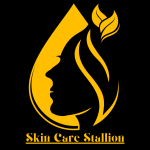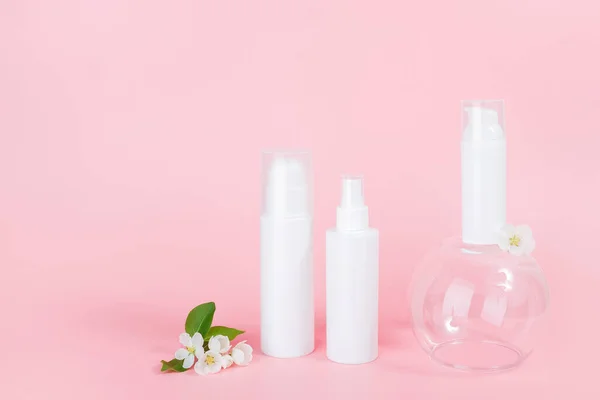What skincare products do I need? It depends on your skin type, concerns, and goals, but generally, a gentle cleanser, moisturizer, sunscreen, and possibly targeted treatments like serums or exfoliants can form a good basic routine.
Unlocking the secrets to radiant skin often feels like navigating an endless maze of C and promises. With aisles brimming with C, serums, and moisturizers, the quest for a flawless complexion can be daunting.
So, what skincare products do you really need? Imagine cutting through the noise to uncover a streamlined regimen tailored to your unique skin type, where each product plays a vital role in achieving that coveted glow.
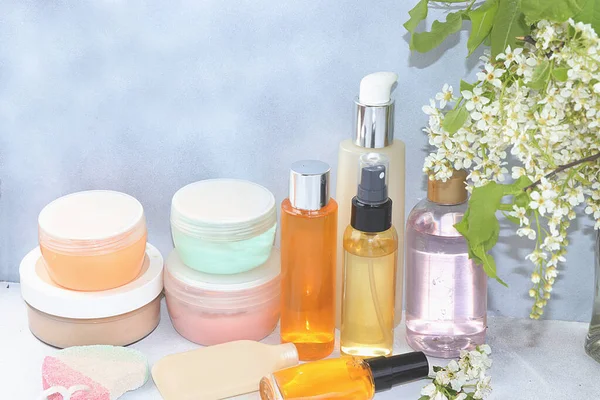
Table of Contents
ToggleWhat Skincare Products Do I Need
To maintain healthy and glowing skin, you need a cleanser, moisturizer, sunscreen, exfoliant, and treatment products for specific skin concerns. Start with a gentle cleanser to remove dirt and oil.
Follow up with a moisturizer to keep your skin hydrated. Always use sunscreen to protect against UV rays. Incorporate exfoliation to remove dead skin cells. Add treatments like serums for targeted issues.
Essential Skincare Products
Your skincare routine should start with a cleanser. This product is crucial for removing dirt, oil, and makeup, leaving your skin fresh and clean. Choose a cleanser suited to your skin type; for example, a foaming cleanser works well for oily skin, while a creamy cleanser is ideal for dry skin.
Many people describe cleansers as refreshing and purifying, emphasizing their ability to deeply clean pores.
Next, apply a moisturizer. Hydration is key to maintaining skin’s elasticity and smoothness. Moisturizers come in various forms, from lightweight lotions to rich creams.
Opt for a product that matches your skin’s needs, whether it’s oil-free for acne-prone skin or a hydrating balm for dry, flaky skin. Common terms associated with moisturizers include nourishing, hydrating, and soothing.
Sun Protection
Sunscreen is a non-negotiable part of any skincare regimen. Daily use of sunscreen protects your skin from harmful UV rays, preventing premature aging and reducing the risk of skin cancer.
Look for a broad-spectrum SPF 30 or higher. Sunscreens are often described as protective, shielding, and essential for maintaining youthful skin.
Exfoliation and Treatment Products
Exfoliants are vital for removing dead skin cells, promoting cell turnover, and achieving a brighter complexion. Regular exfoliation helps unclog pores and enhances the effectiveness of other skincare products.
Use chemical exfoliants like AHAs and BHAs or physical scrubs, but avoid over-exfoliating as it can irritate the skin. Words like brightening, renewing, and smoothing are commonly associated with exfoliation.
Finally, consider adding treatment products such as serums and masks to address specific skin concerns. Serums are concentrated with active ingredients like vitamin C, hyaluronic acid, or retinol, targeting issues such as wrinkles, pigmentation, or dehydration.
Masks can provide an intensive treatment, offering benefits like deep hydration, detoxification, or soothing irritation. Terms like anti-aging, rejuvenating, and targeting are frequently used when discussing treatment products.
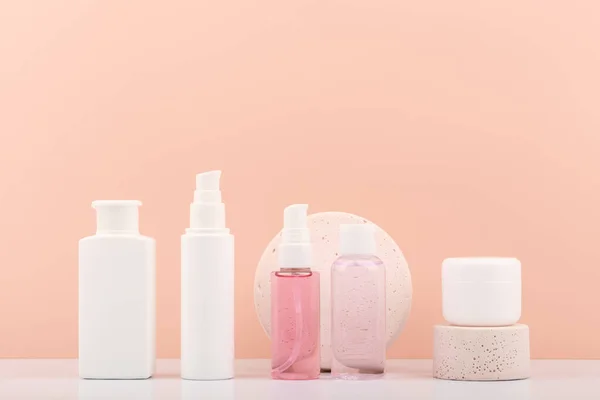
Identifying Your Skin Type
Understanding the Characteristics of Each Skin Type
Identifying your skin type is crucial for effective skincare. Oily skin often features enlarged pores and a shiny complexion. Those with dry skin experience flakiness, a rough texture, and a tight feeling.
Combination skin typically has an oily T-zone and dry cheeks. Sensitive skin is characterized by redness, irritation, and a tendency to react to products. Normal skin is balanced with minimal imperfections.
How to Determine Your Skin Type
You can determine your skin type with a few simple methods. The blotting sheet test helps identify oil levels on your face. Observing how your skin behaves after cleansing is another effective approach.
For the most accurate assessment, consulting a dermatologist is recommended. Recognizing your skin type helps tailor your skincare routine for optimal results.
Essential Skincare Products for Every Routine
Cleansers
Cleansers are vital for removing dirt, oil, and makeup. They help keep your skin clean and prevent clogged pores. Choose from gel, cream, foam, oil-based, or micellar water cleansers. Gel cleansers are great for oily skin, while cream cleansers suit dry skin. Foam cleansers are perfect for normal to combination skin.
Oil-based cleansers work well for heavy makeup removal, and micellar water is gentle for all skin types. Select a cleanser that matches your skin type for optimal results.
Toners
Toners help balance your skin’s pH and remove residual impurities. They can also provide additional benefits based on their formulation. Hydrating toners are ideal for dry skin, exfoliating toners help with acne and uneven texture, and calming toners soothe sensitive skin.
Choose a toner based on your specific skin concerns and type. Using a toner can enhance your skincare routine by preparing your skin for better absorption of other products.
Moisturizers
Moisturizers hydrate your skin and lock in moisture, preventing dryness and flakiness. They come in various forms, including creams, lotions, gels, and ointments.
Creams are best for dry skin, lotions for normal skin, gels for oily skin, and ointments for extremely dry or sensitive skin. It’s essential to choose a moisturizer that matches your skin type to maintain a healthy, hydrated complexion.
Sunscreens
Sunscreen protects your skin from harmful UV damage. There are two main types: chemical and physical (mineral) sunscreens. Chemical sunscreens absorb UV rays, while physical sunscreens reflect them.
It’s crucial to choose a sunscreen with SPF 30 or higher and broad-spectrum protection to shield your skin from both UVA and UVB rays. Apply sunscreen generously and reapply every two hours, especially if you’re outdoors, to ensure effective protection.
Targeted Skincare Products for Specific Concerns
Exfoliants
Exfoliants remove dead skin cells and promote cell turnover. There are two main types: physical exfoliants, like scrubs, and chemical exfoliants, such as AHA, BHA, and enzymes. Physical exfoliants use small particles to manually slough off dead skin. Chemical exfoliants dissolve dead skin cells using acids or enzymes.
Serums
Serums deliver concentrated active ingredients directly to the skin. Hydrating serums often contain hyaluronic acid, while brightening serums feature vitamin C. Anti-aging serums typically have retinoids, and acne-fighting serums include niacinamide.
Eye Creams
Eye creams target specific concerns around the eye area, such as dark circles, puffiness, and fine lines. Key ingredients include caffeine, which reduces puffiness, peptides that boost collagen production, and retinol for fine lines. Apply eye cream by gently tapping it around the orbital bone with your ring finger.
Face Masks
Face masks provide intensive treatment for various skin concerns. Popular types include sheet masks, clay masks, and sleeping masks. Sheet masks hydrate and brighten, clay masks purify and detoxify, and sleeping masks nourish overnight.
Use face masks according to your skin’s needs—sheet masks can be used several times a week, clay masks are best for weekly use, and sleeping masks can be used nightly.
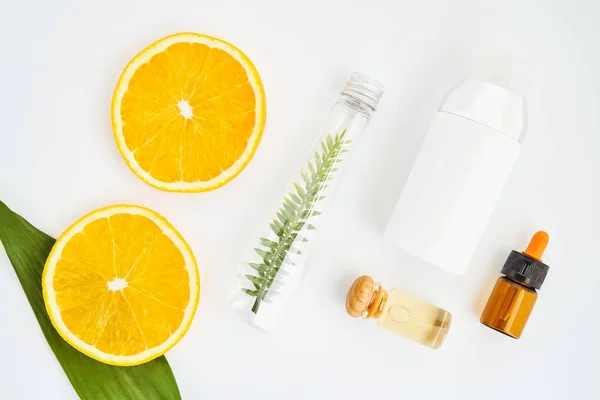
Creating a Skincare Routine
Creating a skincare routine tailored to your skin’s needs is essential for healthy, glowing skin. Here’s a breakdown of an effective morning and evening skincare routine, emphasizing the importance of consistency and proper layering.
Morning Skincare Routine
Cleanse
Start with a gentle cleanser to remove impurities and excess oil.
Tone
Use a toner to balance your skin’s pH and prep it for subsequent products.
Treat
Apply serums or treatments targeted for issues like acne, pigmentation, or wrinkles.
Moisturize
Hydrate your skin with a suitable moisturizer to lock in moisture.
Protect
Finish with a broad-spectrum sunscreen to shield your skin from harmful UV rays.
Evening Skincare Routine
Remove Makeup
Use a makeup remover or cleansing oil to dissolve makeup and sunscreen.
Cleanse
Follow with a gentle cleanser to purify the skin.
Tone
Apply a toner to refresh and prepare the skin for treatments.
Treat
Use night serums or treatments tailored to your skin’s needs.
Moisturize
Apply a night cream to nourish and repair your skin overnight.
Advanced Skincare Tips
Incorporating Active Ingredients
Understanding active ingredients and their benefits is crucial for an effective skincare routine. Active ingredients like retinol, vitamin C, and hyaluronic acid target specific skin concerns such as aging, hyperpigmentation, and dryness. When introducing new active ingredients, start gradually to avoid irritation.
Seasonal Skincare Adjustments
Adapting your skincare routine for summer versus winter is important. In summer, focus on lightweight, non-comedogenic products and high SPF sunscreen to protect against UV rays. In winter, switch to richer moisturizers and incorporate hydrating serums to combat dryness and flakiness.
Lifestyle and Diet
Maintaining a balanced diet and staying hydrated are vital for healthy skin. Consuming plenty of fruits, vegetables, and water can improve your skin’s appearance and texture. Stress and lack of sleep can negatively impact skin health, leading to issues like acne and dullness.
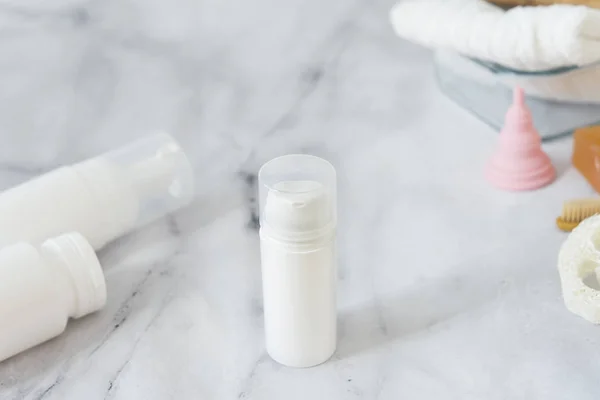
FAQs
What are the essential skincare products everyone should use?
The fundamental skincare products everyone should incorporate are a gentle cleanser, a hydrating moisturizer, and a broad-spectrum sunscreen with SPF 30 or higher. These form the core of any effective skincare routine, suitable for most skin types.
Do I need a different skincare routine for morning and evening?
Yes, your morning routine should focus on protection and prevention, including cleansing, moisturizing, and applying sunscreen. The evening routine should prioritize cleansing to remove makeup and impurities, followed by treatments like serums and a nourishing moisturizer to repair and rejuvenate the skin overnight.
Are serums necessary, and how do I choose the right one?
Serums are concentrated formulations that target specific skin concerns, such as fine lines, dark spots, or hydration. While not absolutely necessary, they can significantly enhance your skincare routine.
How often should I exfoliate my skin?
Exfoliation frequency depends on your skin type and the exfoliant used. Generally, 1 2 times a week is sufficient for most skin types. Over exfoliation can lead to irritation, so start slowly and adjust based on your skin’s response. Choose a gentle chemical exfoliant with AHAs or BHAs for best results.
What ingredients should I look for in a moisturizer?
Key ingredients to look for in a moisturizer include hyaluronic acid for hydration, glycerin for moisture retention, ceramides for barrier repair, and niacinamide for soothing and improving skin texture. Select a moisturizer suitable for your skin type lightweight formulations for oily skin and richer creams for dry skin.
Is sunscreen necessary even if I’m indoors all day?
Yes, sunscreen is crucial even if you’re indoors, as UV rays can penetrate windows and cause skin damage. Additionally, blue light from screens can contribute to skin aging. Apply a broad-spectrum sunscreen daily, reapplying every two hours if exposed to sunlight.
Can I use the same products year-round, or should I adjust with the seasons?
Adjusting your skincare routine with the seasons is beneficial. In winter, opt for richer, more hydrating products to combat dryness. In summer, switch to lighter, non comedogenic products to avoid clogging pores. Always maintain the core routine of cleansing, moisturizing, and sun protection.
How do I layer skincare products correctly?
The general rule for layering skincare is to apply products from thinnest to thickest consistency. Start with a cleanser, followed by toner (if used), then serums, eye cream, moisturizer, and finally sunscreen in the morning. This ensures maximum absorption and effectiveness of each product.
Are natural or organic skincare products better for my skin?
Natural or organic skincare products are not inherently better but can be beneficial for those with sensitive skin or those avoiding synthetic ingredients. Focus on the product’s formulation and effectiveness rather than the label. Patch test new products to ensure they don’t cause irritation.
What are some common mistakes to avoid in a skincare routine?
Common mistakes include over-exfoliating, using too many products, neglecting sunscreen, and not patch testing new products. Also, avoid picking at your skin, which can lead to scars and infections. Consistency and simplicity often yield the best results.
Conclusion
In conclusion, selecting the right skincare products tailored to your specific needs is essential for maintaining healthy, radiant skin. A foundational routine typically includes a gentle cleanser, a hydrating moisturizer, and a broad-spectrum sunscreen to protect against UV damage.
For targeted concerns, consider incorporating serums with active ingredients like vitamin C for brightening, hyaluronic acid for hydration, and retinol for anti-aging benefits. Exfoliants and masks can also be beneficial for deep cleansing and rejuvenation, but should be used sparingly to avoid irritation.
Understanding your skin type and concerns is crucial in choosing products that will work harmoniously to enhance your skin’s health and appearance. Consistency and patience are key, as the benefits of a well-curated skincare routine manifest over time.
